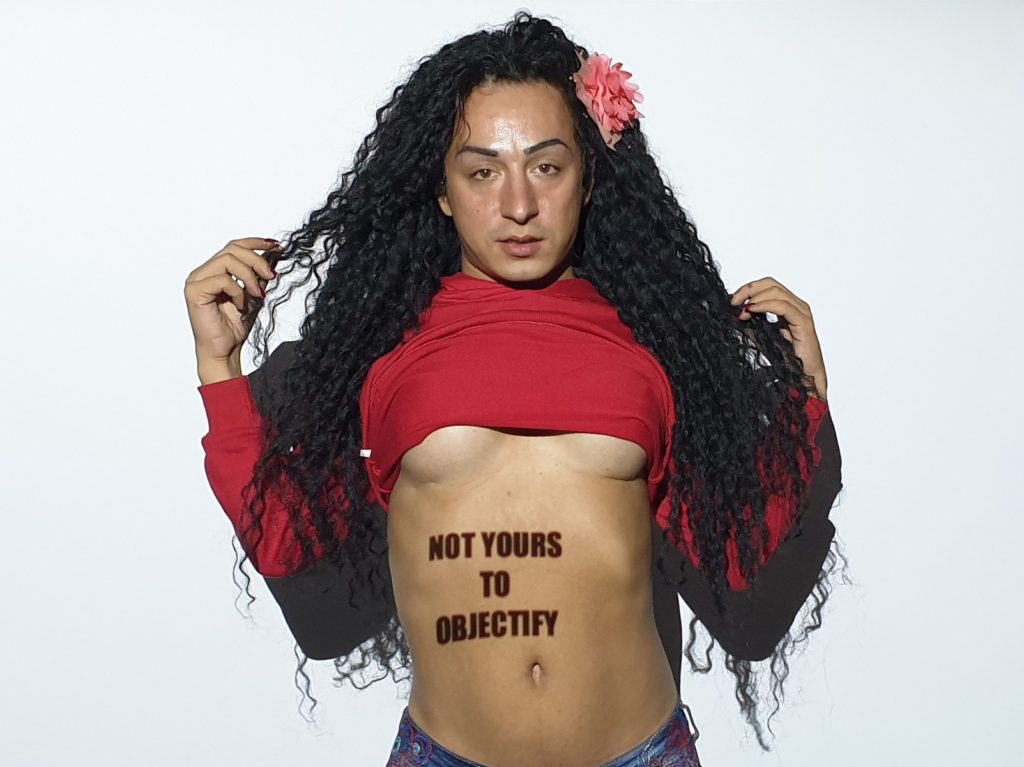
AntonellaLercaDuda
“I am Antonella Lerca Duda.
I am from Romania, I was born in a Roma family, with 7 other brothers.
Ever since I was a child, I felt that I belonged to the world of femininity. But my family did not accept this easily, because I was supposed to get married at 14, as many other youngsters born into the Roma tradition. I was very close to getting married but on the wedding night I caused a big scandal – because I did not perform as a husband. I was not attracted in any way to the girl who was supposed to be my wife.
The following days, my parents took me to an endocrinologist and psychologist, hoping that they could ‘fix’ me. This was something that my family felt really ashamed about.
I got a gender dysphoria diagnostic. My parents did not know much about it, but luckily an LGBT-friendly doctor explained to them what it was all about, and finally they made their peace with it. I started hormone therapy at 14, having my family’s support. But I was bullied at school, so I quit before finishing my first year in high school. It was then that I decided that my life as a Roma trans woman cannot be happy in Romania.
Being both Roma and trans forced me to leave my country at 17. Like me, a lot of other Roma lgbt people have had to do the same. We had to leave our families behind, to leave our homes and end up in a foreign country on our own.
And you find yourself in a different country, not knowing the language, not knowing anyone, not having a feeling of belonging – but having to survive.
In Italy, no-one would hire a trans Roma woman coming from Romania. So I became a sex worker.
Someone like me, a trans Roma woman, was killed last year in Rome. Her name was Laura, and she was 27. She was exactly like me. Having to flee Romania in order to work and send money back home, to support her family.
My clients are very different, from priests who leave their suits in the back of their car before they book me, to 80 year olds who just need someone to talk to. Sometimes, you are their therapist. Other times you stay there, on the streets, scared that you might be the next one to be killed.
My country is very corrupt and not democratic. On August 10, a massive diaspora protest in front of the government was brutally stopped with tear gas and violence. I was there. More than 400 people were injured.
That moment when your country is rejecting you feels worse than being a migrant having to survive abroad. But we continue the fight for democracy and equal rights.
Last month, a referendum to redefine family as the union between a man and a woman did not pass. The initiators of this referendum will not stop here. They will continue to fight against women’s rights and the rights of LGBT persons.
In Romania, the LGBT community is seen as taboo, the enemy. We have a long way to go. And we will not stop until the Romanian state offers equal rights to all its citizens, regardless of their identity.
I lived in Italy for a long time. It became my second home. I wish I didn’t have to leave again. I wish that I could leave in safety and dignity in my country. But hope dies last. It is only a matter of time until things will be all right. I have to believe that.
Until then, I pack my things and fly again to Italy, or wherever seems like a safer place.”